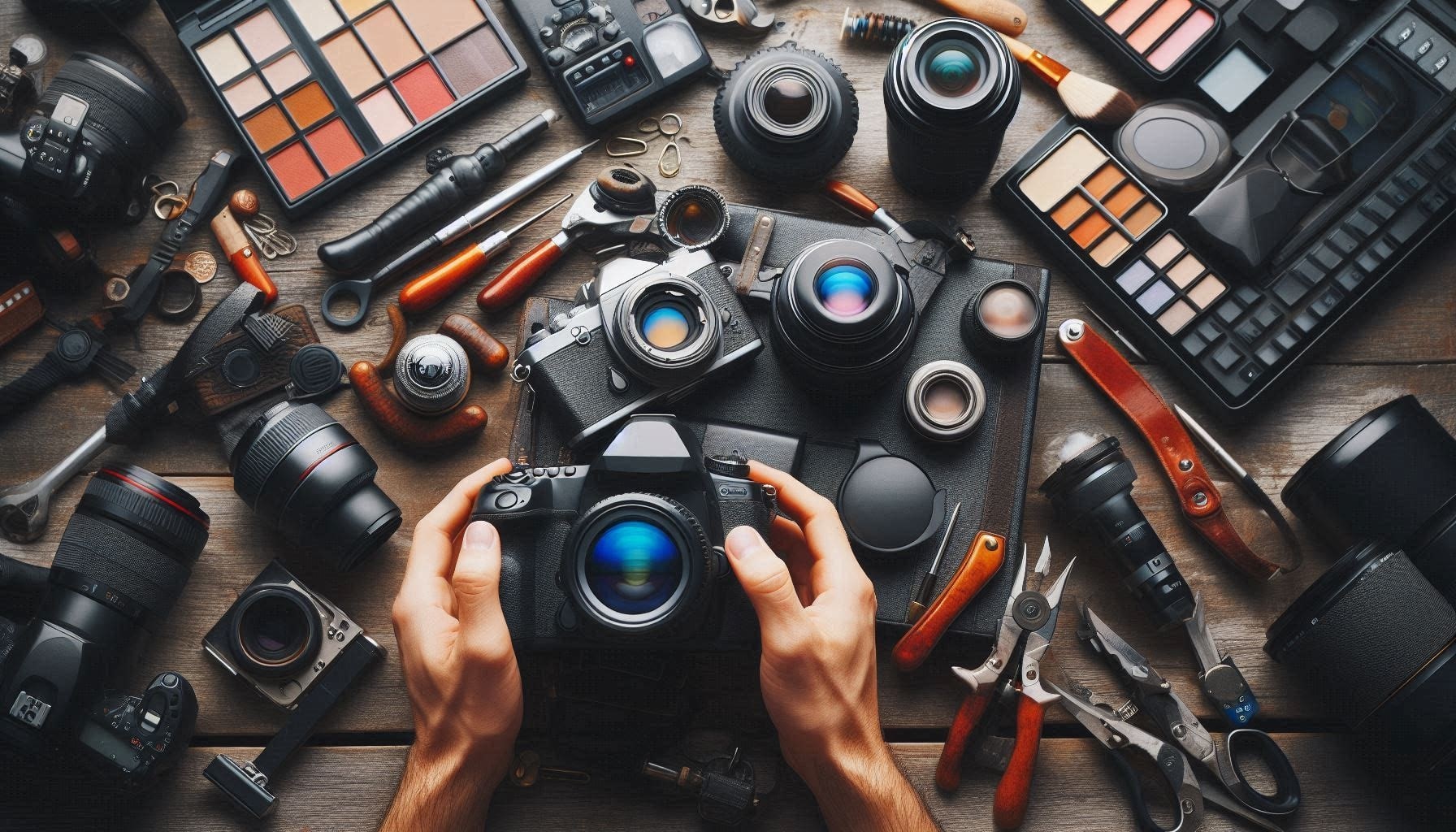Mastering the Craft: The Ultimate Guide to Best Photography Tools
Level up your photo game with a trusty tripod for sharper shots. No more shaky smartphone snaps! #photographytools #tripodlove
-
Imagine this: sunlight filtering through autumn leaves, casting a warm glow on a winding forest path.
-
You pull out your camera, eager to freeze this fleeting moment of beauty.
-
But does your equipment hold you back? Are blurry shots and uninspired edits frustrating your artistic spirit?
-
Say goodbye to limitations! Embrace the power of the right photography tools, designed to elevate your vision from snapshots to stunning works of art.
-
Whether you’re a seasoned pro or a curious beginner, the perfect gear awaits to unlock your creative potential.
Let’s delve into the photographer’s arsenal:
-
Camera: Your trusty companion, capturing light and transforming it into memories. Mirrorless cameras like the Sony a6400 offer portability and quality, while DSLRs like the Nikon D7500 provide robust performance for enthusiasts. For the ultimate image fidelity, full-frame beasts like the Canon EOS R5 reign supreme.
-
Lens: Your window to the world, shaping perspective and emotion. A versatile zoom lens like the 24-70mm equips you for diverse scenarios, while prime lenses like the 50mm f/1.8 excel in low light and offer stunning sharpness.
-
Software: Your digital darkroom, where raw potential is refined into brilliance. Free options like GIMP and Photoscape let you make basic edits, while Adobe Lightroom empowers you with precise control and professional-grade tools.
-
Additional Tools: The finishing touches that elevate your craft. A sturdy tripod like the Manfrotto Befree steadies your shots, while a flashgun like the Godox TT350 illuminates the shadows.
Don’t let your photographic dreams gather dust! Take the first step towards capturing your vision. Research, explore, and invest in the tools that resonate with your style and budget. Remember, the best camera is the one in your hands, so get out there, experiment, and let your creativity flow!
Say goodbye to gloomy pics! A portable flashgun like the Godox TT350 adds light and drama to any scene. pocket power #flashphotography
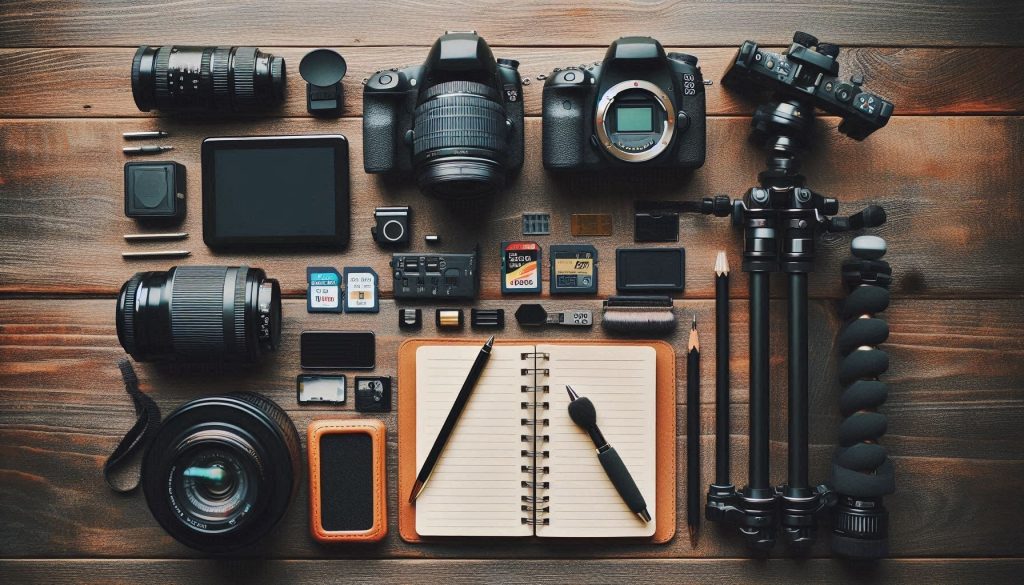
Here are some important Photography Tools:
Photography is a beautiful art form that allows us to capture the world around us in a unique and personal way. But mastering the craft takes more than just a keen eye and a fancy camera. The right tools can make all the difference in the quality of your photos and help you take your skills to the next level.
In this ultimate guide to photography tools, we’ll cover everything you need to know to choose the right gear for your needs and budget. We’ll also discuss some essential techniques for using your tools to their full potential.
Essential Camera Gear
Let’s start with the most important piece of equipment: your camera. The type of camera you choose will depend on your experience level, budget, and shooting style. Here are a few things to consider:
-
Mirrorless vs. DSLR: Mirrorless cameras are smaller and lighter than DSLRs, making them a good choice for travel and everyday photography. DSLRs offer more professional features and better battery life, but they can be bulkier and more expensive.
-
Sensor size: The sensor size is one of the most important factors in determining image quality. Larger sensors capture more light, which results in sharper images with less noise, especially in low-light conditions.
-
Megapixels: Don’t get too hung up on megapixels. While a higher megapixel count can help print large photos, it’s not the most important factor for image quality.
The lens is King:
Prime lenses: where sharpness meets speed. Ditch the zoom and embrace stunning bokeh with a 50mm f/1.8! bootylicious #portraitperfection
Once you’ve chosen a camera, it’s time to think about lenses. Your lens will determine the field of view, aperture, and focal length of your photos. Here are a few essential lenses for every photographer:
-
Zoom lens: A versatile zoom lens like a 24-70mm or 18-135mm is a great all-around option that allows you to capture a variety of shots without having to change lenses.
-
Prime lens: Prime lenses offer wider apertures and sharper image quality than zoom lenses. A 50mm f/1.8 is a classic prime lens that’s perfect for portraits and low-light photography.
-
Wide-angle lens: A wide-angle lens is great for capturing landscapes, architecture, and group shots.
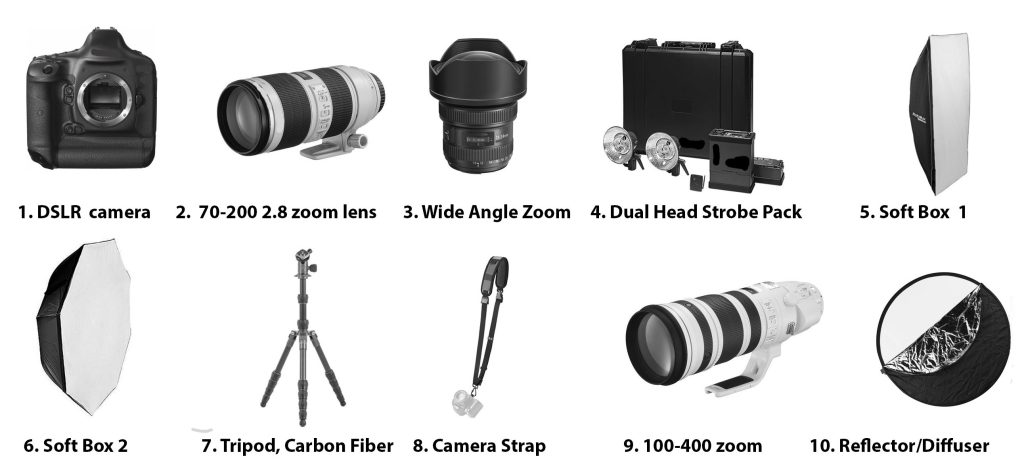
Beyond the Camera and Lens
Gone are the days of dull photos! Unleash your inner artist with user-friendly software like Lightroom Mobile. ✨ mobile magic #lightroomlove
In addition to your camera and lens, there are a few other essential tools that every photographer should have:
-
Tripod: A tripod is essential for sharp photos in low-light conditions and long exposures.
-
Flashgun: A flashgun can help you add light to your photos in dark situations.
-
Filters: Filters can be used to change the color and tone of your photos.
-
Memory cards: Always carry plenty of memory cards so you never miss a shot.
-
Photo editing software: Photo editing software allows you to make adjustments to your photos after you’ve taken them. Adobe Lightroom and Photoshop are two popular options.
Mastering the Techniques
Now that you have the right tools, it’s time to learn how to use them effectively. Here are a few essential techniques to master:
-
Exposure: Exposure is the amount of light that enters the camera sensor. It’s controlled by three settings: aperture, shutter speed, and ISO.
-
Composition: Composition is the arrangement of elements in your photo. There are many different compositional rules, but some of the most common include the rule of thirds and leading lines.
-
Lighting: Lighting is one of the most important factors in photography. Learn how to use natural light and artificial light to your advantage.
-
Editing: Editing can be used to improve the overall look of your photos. Learn how to use basic editing techniques like cropping, adjusting brightness and contrast, and removing blemishes.
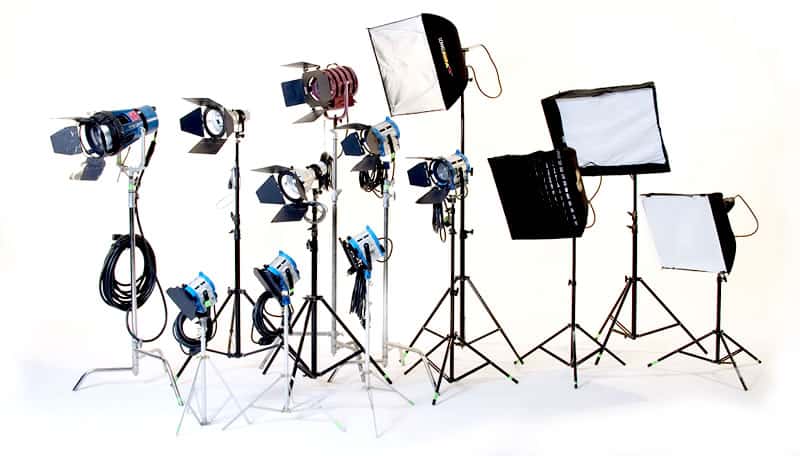
Practice Makes Perfect
Remember, the best photography tool is your creativity! Get out there, experiment, and capture the world through your unique lens. your view #photographylife
The best way to improve your photography skills is to practice, practice, practice. Get out there and take photos as often as you can. Experiment with different techniques and settings. Don’t be afraid to make mistakes. The more you practice, the better you’ll become.
Get ready to:
-
Capture crystal-clear shots, even in tricky lighting
-
Craft photos that pop with vibrant colors and life
-
Edit your images like a master (no fancy skills required!)
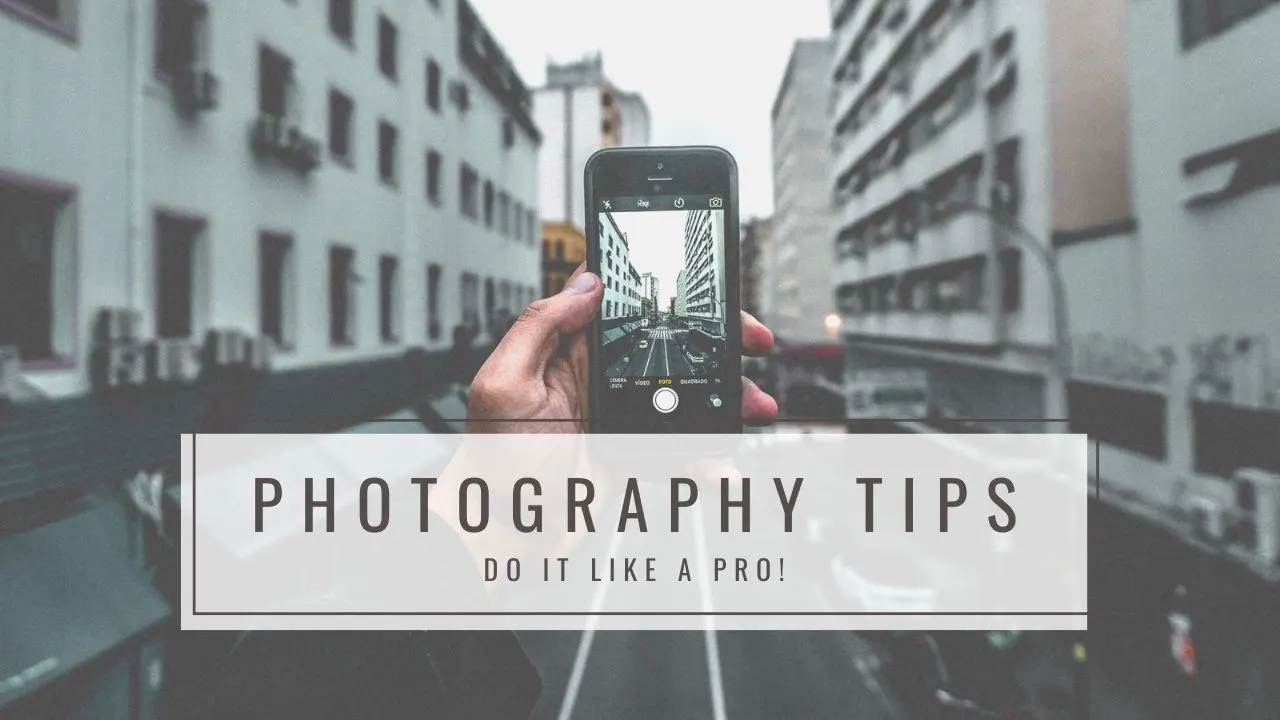
Top 10 Tips of Pro level smartphone photography : Turn Your Smartphone Into a Pro Camera
Top 10 Tips of Pro level smartphone photography : Turn Your Smartphone Into a Pro Camera
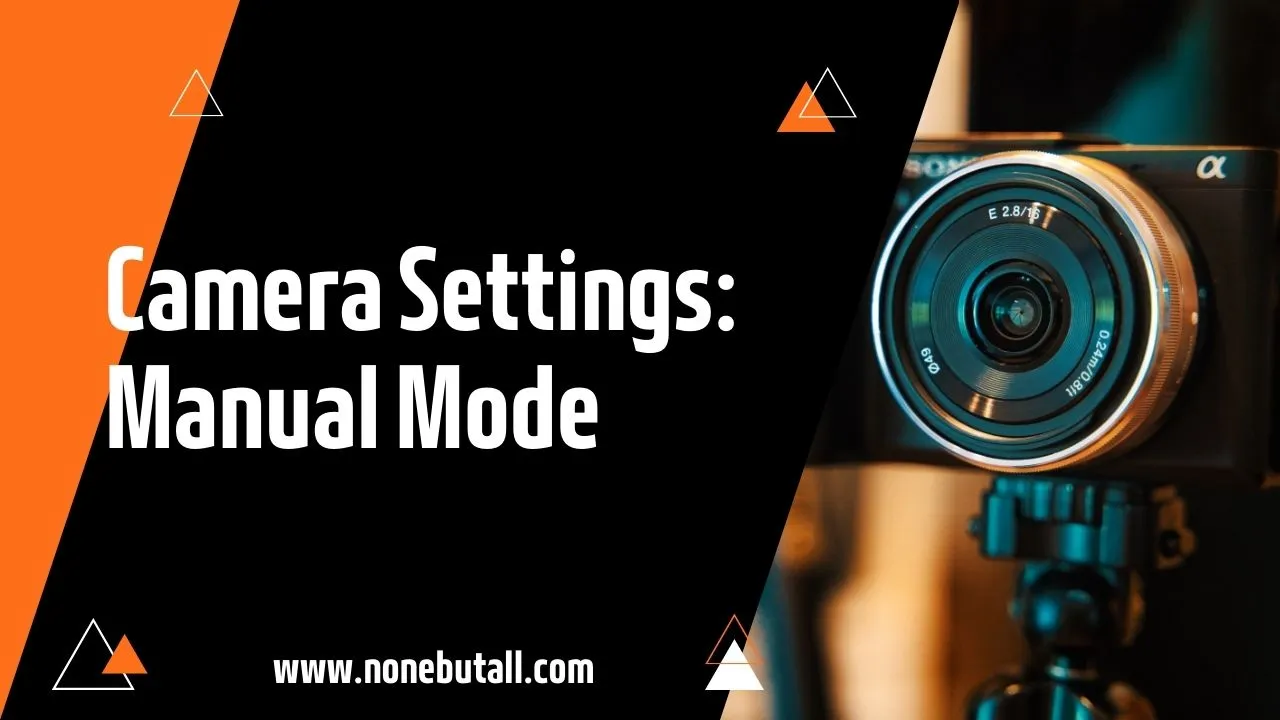
Breaking Down Camera Settings: A Guide to Shooting in Manual Mode
Breaking Down Camera Settings: A Guide to Shooting in Manual Mode

24 Photography Tips for Beginners in 2024 - Happy Shooting!!
24 Photography Tips for Beginners in 2024 - Happy Shooting!!
